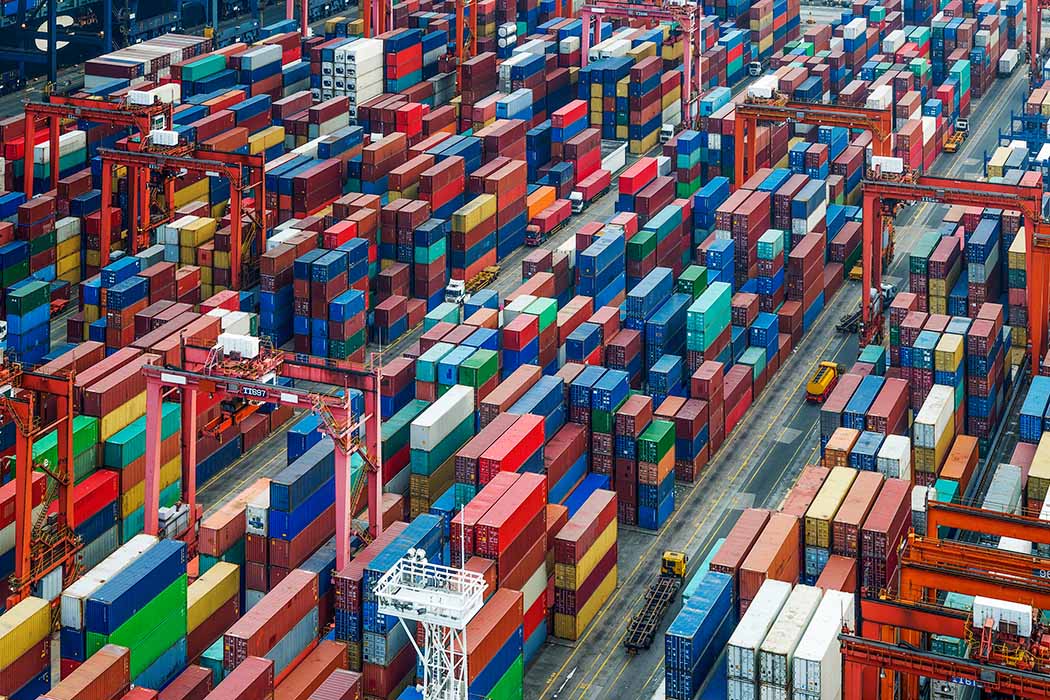
CBP recently released the agency’s operations statistics and monthly update for June 2023. CBP works diligently with the trade community and port operators to ensure merchandise is cleared as efficiently as possible to strengthen international supply chains and improve border security. CBP also shared an update regarding its efforts to eliminate goods from the supply chain made with forced labor.
June 2023 update
Last month, CBP processed more than 3.1 million entry summaries valued at more than $278 billion. CBP identified an estimated $7 billion of duties to be collected by the U.S. government. In June, trade via ocean service accounted for 39.5% of the total import value, followed by air, truck, and rail.
CBP provided an update regarding its lead role in the U.S. government’s efforts to eliminate goods from the supply chain made with forced labor—specifically with respect to the Xinjiang Uyghur Autonomous Region (XUAR) of China.
At the one-year milestone since the Uyghur Forced Labor Prevention Act (UFLPA) took effect, CBP has reviewed a total of nearly 4,300 shipments valued at nearly $1.4 billion.
Today’s hot topics: Compliance edition
Forced labor is an area of focus that is high on trade compliance expectations today, as demonstrated by CBP’s reasonable care publication and the Customs and Trade Partnership Against Terrorism (CTPAT) social compliance program expectations.
However, this is just one concept of many that require strong trade compliance strategies. Now is a great time to review CBP’s current list of seven priority trade issues. The agency expects all importers to have detailed policies, procedures, and controls in place regarding risk exposure.
What are priority trade issues (PTI)?
PTIs can cause significant revenue loss, harm the U.S. economy, and potentially threaten health and safety. Due to their potential impact, PTIs consume much of CBP’s investment and resources, enforcement areas, and facilitation efforts.
CBP administers trade policy by collecting duties and enforcing remedies to create a level playing field for American businesses. If you don’t already, get to know this list of priority trade issues:
1. Agriculture and quota
The amount or volume of certain commodities that can be imported in the United States are controlled by import quotas. Quotas are established by legislation, presidential proclamation, or executive order and may be announced in specific legislation or provided for in the Harmonized Tariff Schedule of the United States (HTSUS).
2. Antidumping and countervailing duties (AD/CVD)
When the Department of Commerce finds that imported merchandise has been sold in the United States at an unfairly low or subsidized price, CBP levels the playing field for U.S. companies injured by the unfair trade practices through collection of antidumping and countervailing duties (AD/CVD). This PTI facilitates legitimate trade, detects and deters circumvention of the law, all while liquidating final duties in a timely and accurate manner.
3. Free trade agreements
The United States negotiates and implements free trade agreements (FTAs) and preferential trade legislations (PTLs), also known as “preference programs,” to promote prosperity for the U.S. economy. FTAs and PTLs open up new markets for U.S. exports, protect American producers and workers, and encourage free and equitable trade among trading partners.
Through CBP’s Office of Trade, the agency raises awareness of U.S. trade programs among stakeholders and provides subject matter expertise to new and ongoing trade negotiations. The Office of Trade supports businesses and trading partners in promoting trade compliance and enforcement.
CBP also reviews trade compliance activities such as fraudulent trade practices, transshipments, false importer claims, undervaluation, and undercounting of goods.
Additionally, CBP assesses areas of potential non-compliance and high-risk industries to ensure that only goods that comply with FTA’s and PTL’s rules of origin requirements claim preferential duty benefits and appropriate duties are paid on imported goods that are not entitled to such preferential treatment.
4. Import safety
Designed to ensure that unsafe products do not enter the commerce of the United States, CBP partners with other government agencies, other foreign governments, and the industry at large to work collaboratively and collectively to better define and assess risk. CBP encourages the use of partnership and best practices through increased automation and the sharing of information to better protect U.S. consumers.
5. Intellectual property rights (IPR)
Counterfeit and pirated goods threaten innovation, the U.S. economy, U.S. worker livelihood, and the health and safety of consumers can also be at risk.
Trade in these illegitimate goods is associated with smuggling and other criminal activities, often funding criminal enterprises. CBP’s Trade Office protects the intellectual property rights of American businesses, safeguarding them from being used with malicious intent. They also uphold American innovation and ingenuity while protecting businesses from unfair competition.
CBP targets and seizes imports of counterfeit and pirated goods and enforces exclusion orders on patent-infringing and other IPR-violative goods. In June 2023, CBP seized over 1,700 shipments containing counterfeit goods at a value of more than $120 million.
6. Revenue
CBP strives to have effective internal controls that protect duties and taxes collected for the U.S. government and deliver financial reports that meet the highest accounting standards. In fiscal year 2022, the agency collected more than $111 billion in duties, taxes, and fees.
7. Textiles and wearing apparel
The textiles industry is crucial to many industries, including automotive, law enforcement, military, agriculture, and medical. In fact, globally, textiles is a multibillion-dollar industry that employs more than 500,000 workers in the U.S. alone, making the United States the second largest exporter of textiles.
Textiles remains designated as a PTI with CBP with the goal of ensuring textile imports fully comply with applicable laws, regulations, quotas, free trade agreements, and other preference programs. CBP’s efforts in the textile industry focus on high-risk areas—significant revenue loss, harm to the economy, or threats to health and safety. CBP promotes legitimate trade in the industry while also encouraging a strong domestic manufacturing base.
The combination of high duty rates and complex laws and regulations make textile imports susceptible to trade fraud.
Learn more about these priority trade issues and consider if your company’s supply chain connects to any of them by viewing the CBP’s Priority Trade Issues Overview.
Stay informed
Developments in customs and trade continue to evolve—stay informed to be prepared:
- Connect with our trade policy experts
- View our Trade & Tariff Insights
- Subscribe to our Client Advisories



